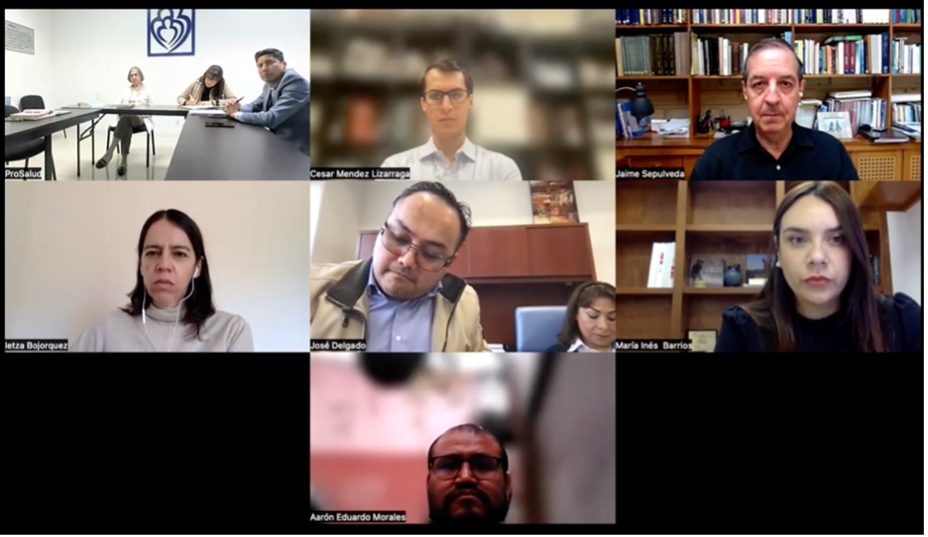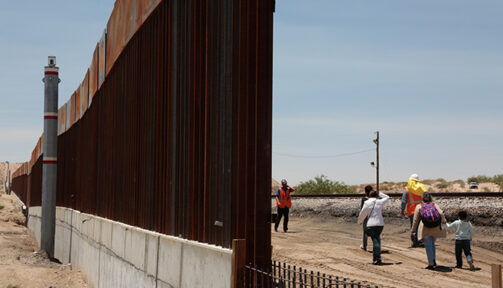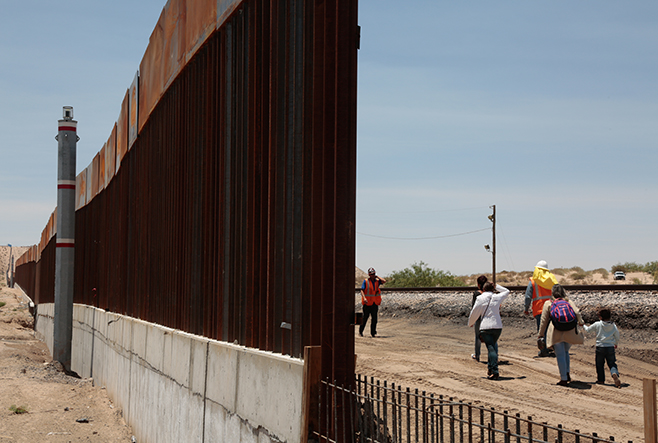According to the U.S. Border Patrol and Office of Field Operations, 301,983 encounters* with migrants crossing into the United States from Mexico occurred in December 2023, with a total of around 2.7 million encounters in 20231. A significant number of these migrants lack food security, basic health care, and other essentials.2 In addition to ongoing criminal and political violence, the displacement of people to the U.S.-Mexico border has created a humanitarian crisis in the region.
Building upon the work of the Border Humanitarian Health Initiative of 2020, the current project “Delivering Humanitarian Health Care for Migrants at the U.S.-Mexico Border” seeks to contribute to four key issues affecting individuals in transit along the border through local and state partnerships: 1) maternal and reproductive health; 2) preventive care, such as vaccinations and nutrition; 3) access to mental health care; and 4) increase awareness of the right to health.

Thanks to a generous donation from the Wyss Medical Foundation, a group of researchers and public health professionals – led by Ietza Bojorquez, PhD, MSc (El Colegio de la Frontera Norte, Mexico), and Jaime Sepulveda, MD, DSc, MPH (UCSF) – has engaged in a series of conversations with key governmental actors and CBOs from Tijuana and Ciudad Juarez, two of the cities with the highest concentration of migrants along the U.S.-Mexico border, and have co-jointly designed a series of activities to address the ongoing health crisis based on local needs.
The three areas of activity to be implemented this year are 1) training of health promoters in Tijuana and Ciudad Juarez to provide preventive care and facilitate connection with health services for migrants; 2) developing a curriculum and training health service providers in cultural and medical high-yield topics; 3) equipping medical offices were migrants receive care; and 4) implementing a communication campaign to increase awareness on the right to health.
The project leadership expects to have health promoters on the field by mid-May 2024, starting with health diagnoses in selected migrant shelters and conducting essential activities that facilitate healthcare to mitigate the ongoing humanitarian health crisis.
*Encounters: refers to apprehensions, migrants taken into custody in the U.S., and expulsions those migrants immediately expelled to their home country or last country of transit without being held in U.S. custody.
1. U.S. Border Patrol and Office of Field Operations
2. Pew Research Center
Banner photo by David Peinado Romero

